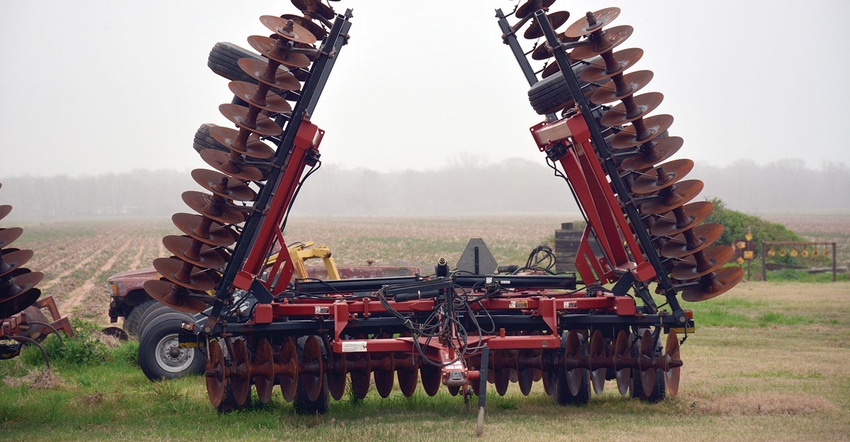
During a financially stressful year, management strategies, such as managing income, cash flow, and liabilities, are even more pertinent than in an average year.
Jeff Johnson, Extension and research professor in Agricultural Economics at Mississippi State University, spoke in a recent webinar about management options on the farm.
"When we get a shock to the system like recently," he said, "it's a good idea to go back and review some of the management options we have, especially since we've been experiencing some financial stress in the ag sector for several years now.
"Some of the tactics, producers have already been implementing. Others, they wouldn't normally consider, and I wouldn't recommend in a good to a normal year, but these tactics might have a place this year to help folks out until prices turn around."
Managing income, cash flow
Controlling costs, renegotiating cash leases, reducing capital spending, and increasing non-farm income are a few ways farms can manage income and cash flow during financial stress.
"On managing cash flows, the first step is always controlling costs," Johnson said. "Producers are always controlling costs, but there are a few tips to consider going forward. One is to look at fertilizer costs, which are down about 20% from 2019. This might help producers who may not have been able to get fertilizer out yet this year because of wet field conditions."
Watch natural gas prices. According to Johnson, if natural gas prices follow crude oil prices and go down, there's a chance that nitrogen prices next year will be more inexpensive than they are currently.
"On fuel prices, diesel is down about 50 cents over last year," he said. "Interest rates on operating loans are around 6% to 6.5%. It's uncertain how operating loan interest rates are going to be affected by the changing interest rates from the Federal Reserve Bank."
Johnson recommends considering renegotiating cash rents.
"It might be a good time to talk to landowners about cash rents and maybe consider flexible rents or flexible leases," he said.
"Also, reduce capital spending. Depending on your situation, it might be a good year to repair that piece of equipment one more time rather than investing in new equipment and machinery. An off-farm job can help to increase your non-farming income if there is an opportunity to have a side job or business."
Managing liabilities
One tip to manage liabilities is to work with your lender.
"It's a great time to sit down with your lender," Johnson said. "Some things to talk about are extending terms on existing liabilities, re-amortizing some carryover, or looking into the possibility of paying interest for a short period until we get commodity prices back up.
"Reduce debt through funds from non-farm earnings, outside capital, or sale of farm assets."
This might also be the time to refinance long-term debt like farm mortgages.
“This is a good time to look at these options right now because mortgage rates are lower," he said. "These are a few key suggestions to help farmers when managing through a financially stressful situation. Now is a good time to see if these management options might work for you."
About the Author(s)
You May Also Like




